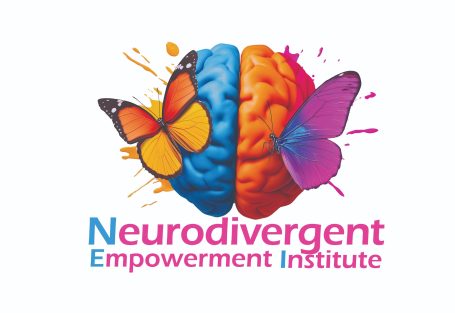Empowerment-Based Integrated Treatment Modality for ADHD, OCD, ASD, ODD, and PTSD in Children
Neurodivergence Empowerment Approach
This approach centers on celebrating and empowering neurodivergent children, helping them recognize their strengths and unique perspectives. Instead of pathologizing differences, the goal is to nurture self-esteem, resilience, and autonomy in each child while addressing challenges they may face.
Non ABA Treatment Modalities
Empowerment Focused
Multidisciplinary and Holistic Team
A collaborative team—psychologists, pediatricians, psychiatrists, music and art therapists, occupational therapists, somatic therapists, life skills coaches, and specialists in oxytocin and psychedelic therapy—works together to provide a child-centered, strength-based treatment plan. The plan aims to enhance both cognitive and emotional health while fostering the child’s individuality.
Comprehensive Assessment
Assessments include:
- Neuropsychological testing to understand cognitive strengths and challenges.
- Behavioral observation in varied environments to identify areas of difficulty and strength.
- Trauma history and emotional health evaluations, with a focus on promoting healing and empowerment.
- Parental and teacher input to gain a holistic understanding of the child’s experiences.
Psychotherapeutic Interventions
- Cognitive Behavioral Therapy (CBT): Tailored for ADHD, OCD, and PTSD, CBT helps children understand how their thoughts affect behavior. For PTSD, a trauma-informed approach fosters resilience.
- Play Therapy: Used to help younger children process emotions and gain insight into their experiences in a safe, creative way.
- Somatic Therapy: By focusing on body awareness, this therapy helps children, particularly those with PTSD and ASD, connect physical sensations to emotional responses, empowering them to regulate emotions.
Creative Therapies
- Music Therapy: Empowers neurodivergent children by tapping into their natural creativity and expression. This helps with emotional regulation and enhances focus, especially for children with ASD and ADHD. For PTSD, music offers a gentle way to explore trauma.
- Art Therapy: Allows children to express complex emotions that may be difficult to verbalize. This creative outlet can be especially empowering for children with OCD, ASD, and PTSD, helping them to explore emotions and improve self-understanding.
Life Skills Training
- Daily Living Skills: Training in self-care, organization, and time management to promote independence and self-confidence. Children with ADHD, ASD, and ODD benefit from routines and structured skill-building that emphasize autonomy.
- Executive Functioning Skills: Supporting children with ADHD and ASD by helping them develop planning, prioritization, and problem-solving abilities. This fosters empowerment by enabling children to manage daily challenges more effectively.
Social Skills Training
- Group Therapy: Group sessions provide children with ADHD, ASD, and ODD the opportunity to develop social skills, empathy, and cooperation in a safe, structured environment.
- Family Therapy: Helps families understand and support neurodivergent children, fostering healthier dynamics and improving communication. Psychoeducation empowers parents with tools to better navigate their child’s neurodivergence.
Oxytocin Therapy
- Oxytocin Therapy (under professional guidance): Oxytocin, a neuropeptide, has been studied for its role in enhancing social bonding and emotional regulation. For children with ASD, ADHD, and PTSD, oxytocin therapy may promote increased social connection and reduce anxiety. Used carefully, this therapy can empower children to feel more connected and confident in their interactions, particularly in overcoming social anxiety and isolation.
Mindfulness and Movement-Based Therapies
- Yoga and Mindfulness Practices: These approaches are empowering for children with ADHD, ASD, and PTSD by fostering self-awareness and emotional regulation. Techniques like body scans and breathing exercises help children feel in control of their body and emotions.
- Somatic Movement Therapy: Encourages children to engage in physical activities that connect body and mind, providing a sense of empowerment by releasing trauma-related tension (particularly useful for PTSD and ASD).
Sensory Integration Therapy
- Occupational Therapy (OT): OT interventions help children regulate their responses to sensory stimuli, improving attention, self-soothing, and motor skills. Empowerment comes from improved self-regulation and functional independence, particularly for children with ASD and ADHD who may struggle with sensory overload.
Psychoeducation and Support for Neurodivergence
- Parent and Teacher Education: A core element of this approach is empowering parents and teachers to understand and support neurodivergent children. Education focuses on managing behaviors in a way that celebrates neurodiversity and emphasizes the child’s strengths.
- Empowerment Language: Using affirming language that celebrates neurodivergence and highlights each child’s unique gifts and potential is key to fostering self-esteem.
We need your consent to load the translations
We use a third-party service to translate the website content that may collect data about your activity. Please review the details in the privacy policy and accept the service to view the translations.












